Real Choices, Real Lives: The Early Years (2007 – 2015)
The research study, Real Choices, Real Lives began in 2007 – following the lives of a cohort of girls in nine countries around the world who were born in 2006.
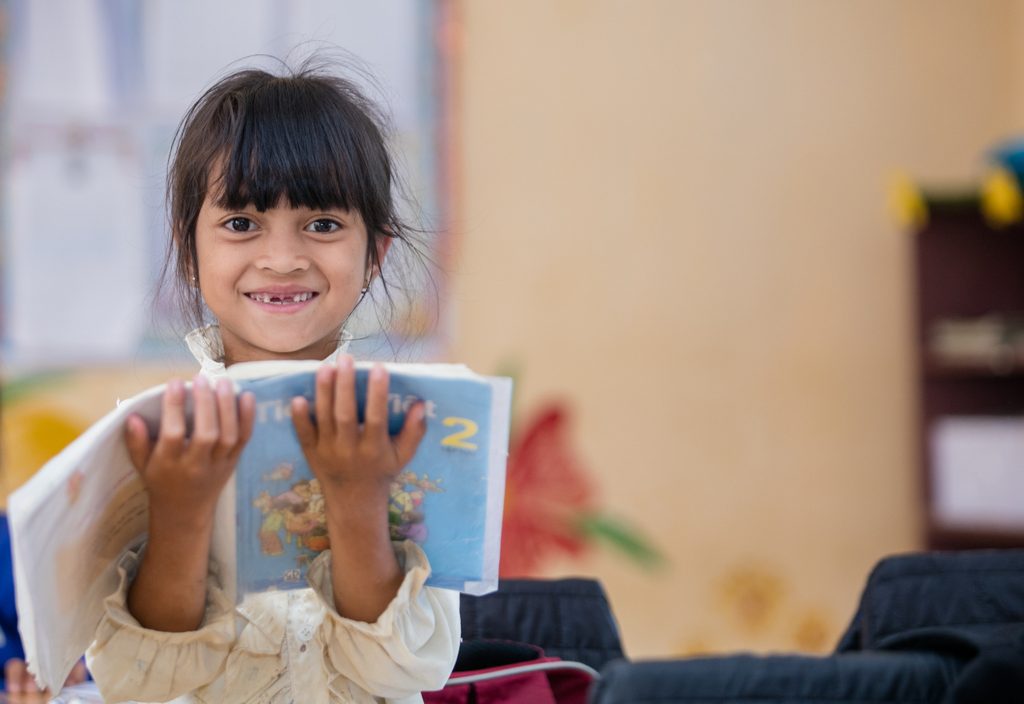
The study was initiated by Plan International UK and was used to complement Plan International’s State of the World’s Girls report series by adding a longitudinal and qualitative perspective towards understanding how gender norms influence and impact girls globally as they grow up.
For the first nine years, the study explored the girls’ household dynamics, their health, what they ate, how they spent their time, and their education journeys – and the findings were included as a section of each year’s State of the World’s Girls report.
These annual findings are available here as standalone reports.
2007
In 2007, Real Choices, Real Lives introduced the 135 cohort girls and explored the contexts in which they were living in three regions around the world – from Africa: Benin, Togo and Uganda; from Southeast Asia: Cambodia, the Philippines and Vietnam; and from Latin America and the Caribbean (LAC): Brazil, the Dominican Republic and El Salvador.
Download the 2007 report
Real Choices Real Lives: Introduction (2007)
811.66 kb
2008
In 2008, the study did a deep dive focus on the lives of the cohort girls in Benin. We spoke to the girls’ household members – including their caregivers and siblings – in order to understand the family dynamics, attitudes and beliefs of the people that the girls were growing up with.
“My sister’s life will be different from other girls.”
Alice’s brother, age 14 (2008), Benin
Download the 2008 report
Girls in the Shadow of war (2008)
517.18 kb
2009
In 2009, we learned about their girls’ daily routines – including their time spent at play and in early learning. The study also explored the livelihoods and income of the girls’ parents, the girls’ health, and examined the potential opportunities and challenges that could be experienced by the girls in Uganda as they grow up.
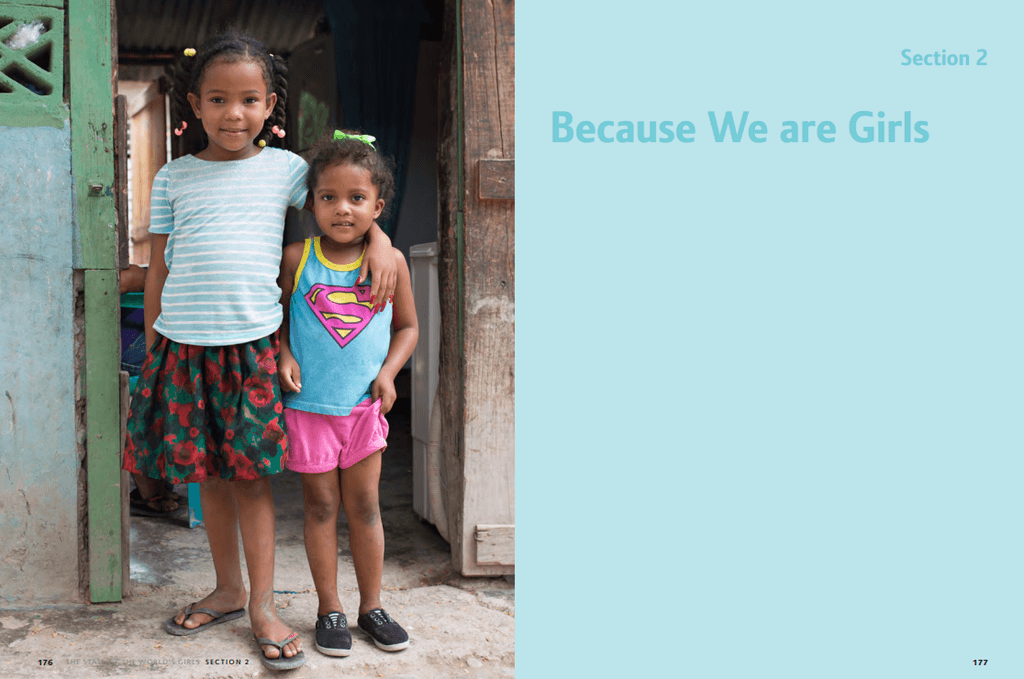
Download the 2009 report
Girls in the Global Economy (2009)
1.00 mb
2010
When the girls were three and four years old, in 2010, Real Choices, Real Lives explored the girls’ lives in relation to five of the eight Millenium Development Goals: covering topics including poverty and hunger, education, gender equality, child mortality, and HIV/AIDS.
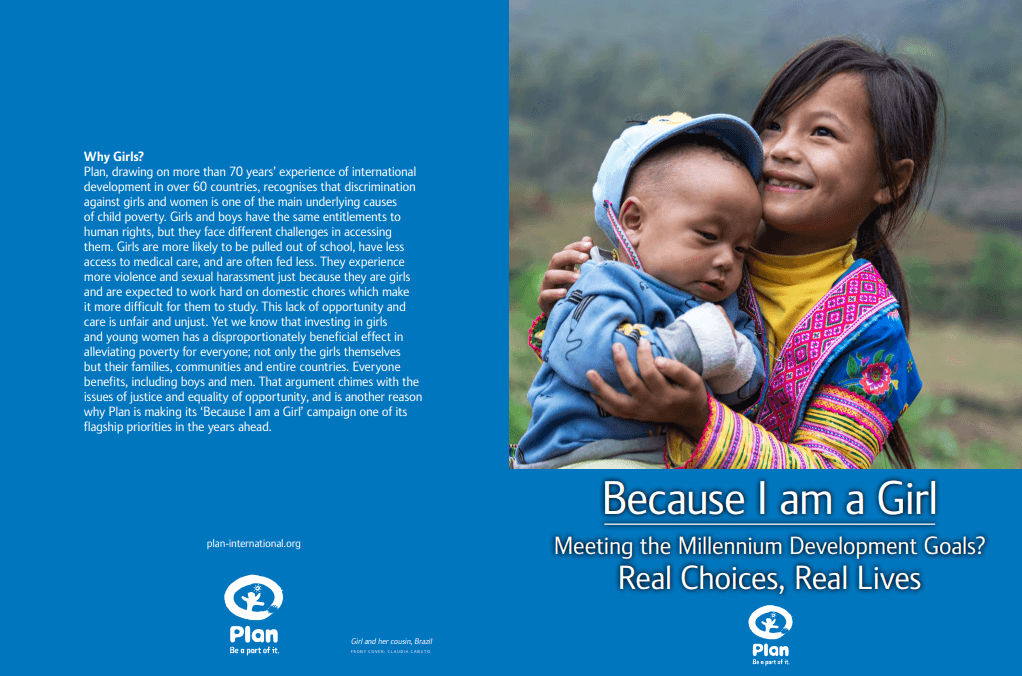
“Girls are good at bringing about change in society and, if educated, they can transform their family as well as their community.”
Sylvia’s mother, 2010, Uganda
Download the 2010 report
Meeting the Millennium Development Goals (2010)
6.09 mb
2011
In 2011, the study investigated gender norms and dynamics in the girls’ households – particularly looking at roles that the girls’ fathers played in the home. We explored the care work the girls’ fathers perform, violence in the cohort homes, as well their father’s attitudes and beliefs – and the impact that this has on the girls.
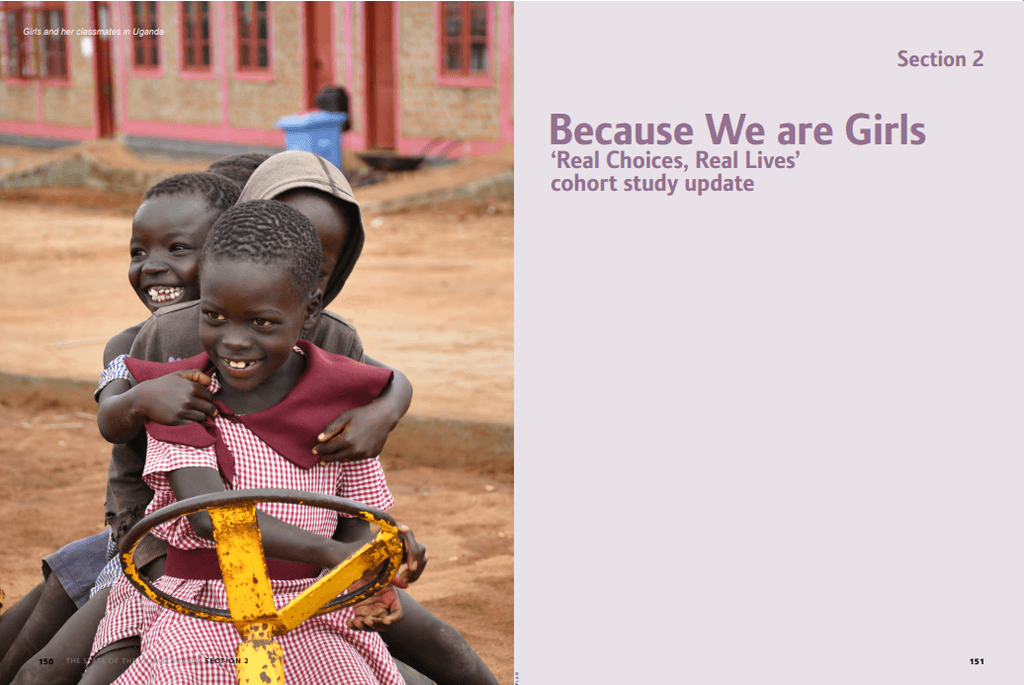
Download the 2011 report
Because We Are Girls (2011)
1.45 mb
2012
In 2012, Real Choices, Real Lives explored generational change – looking at the experiences of the cohort girls’ mothers and grandmothers when they were growing up, and how this has influenced their attitudes towards their daughters’ upbringing. The report explores topics including education, access to information about sexual and reproductive health, and girls’ responsibilities within the home.
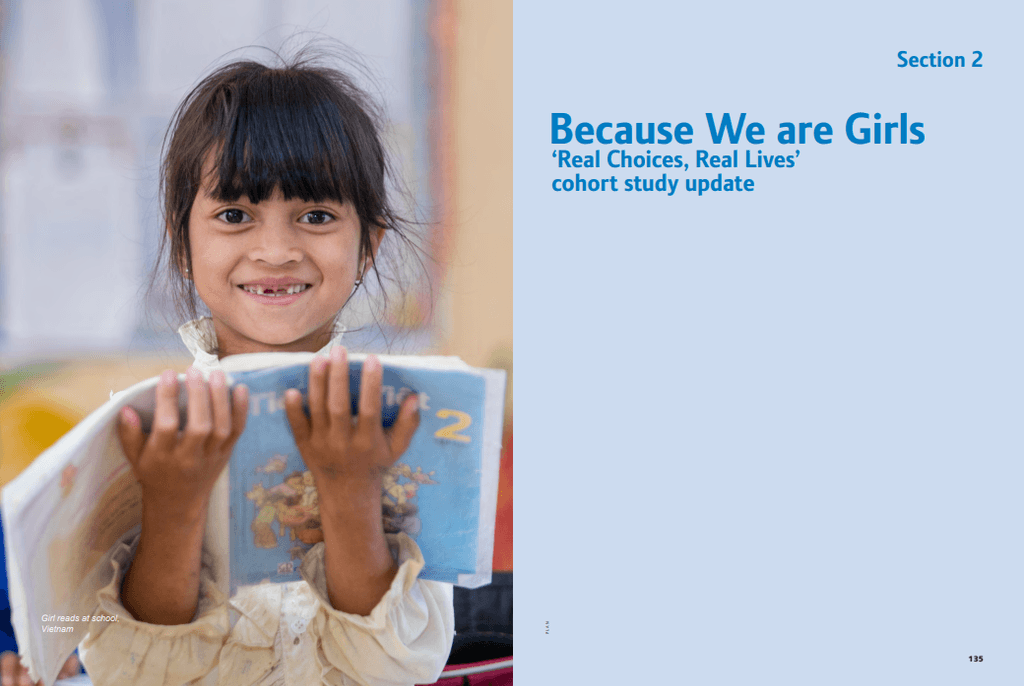
“I became a little woman when I was seven, because I helped my mother to raise all of the kids.”
Leyla’s grandmother, 2012, Dominican Republic
Download the 2012 report
Because We Are Girls (2012)
1.86 mb
2013
When the girls were six and seven years old, in 2013, the study explored risk factors for girls – such as barriers to their education, the burden of illness, protection issues, and financial precarity experienced by their households.
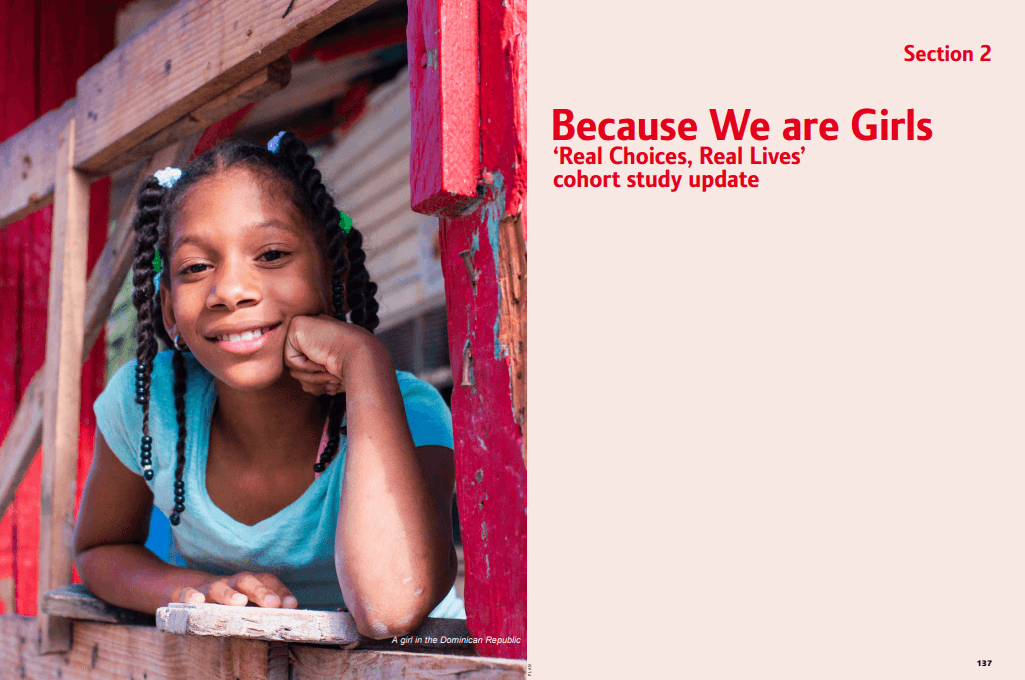
My mother does not allow me and my sister [outside] to play with boys.”
Amanda, age 6 (2013), Brazil
Download the 2013 report
Because We are girls (2013)
1.91 mb
2014
In 2014, Real Choices, Real Lives explored the power of play in building girls’ self esteem and their ability to navigate the world around them. The report also provided an update on their girls’ education journeys, their household chores, and their families’ livelihoods.
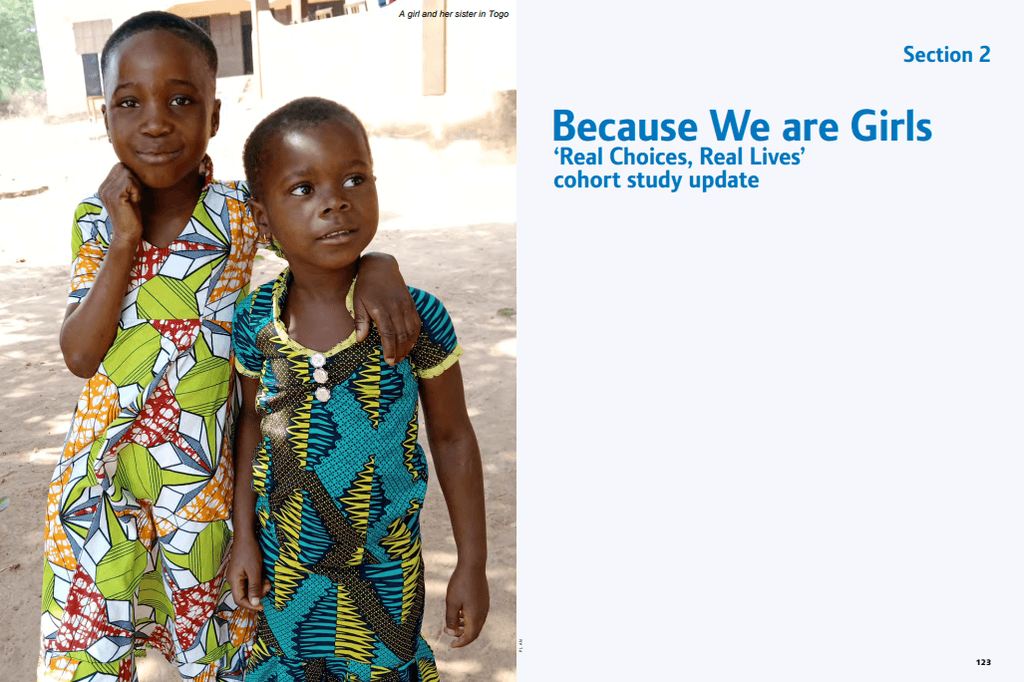
Download the 2014 report
Because We Are Girls (2014)
1.73 mb
2015
In 2015, we investigated how the cohort girls were navigating gender norms. The study found that some girls are conforming to gendered social norms, while others were resisting against these – and explored the factors that enable girls to challenge inequalities and discrimination.
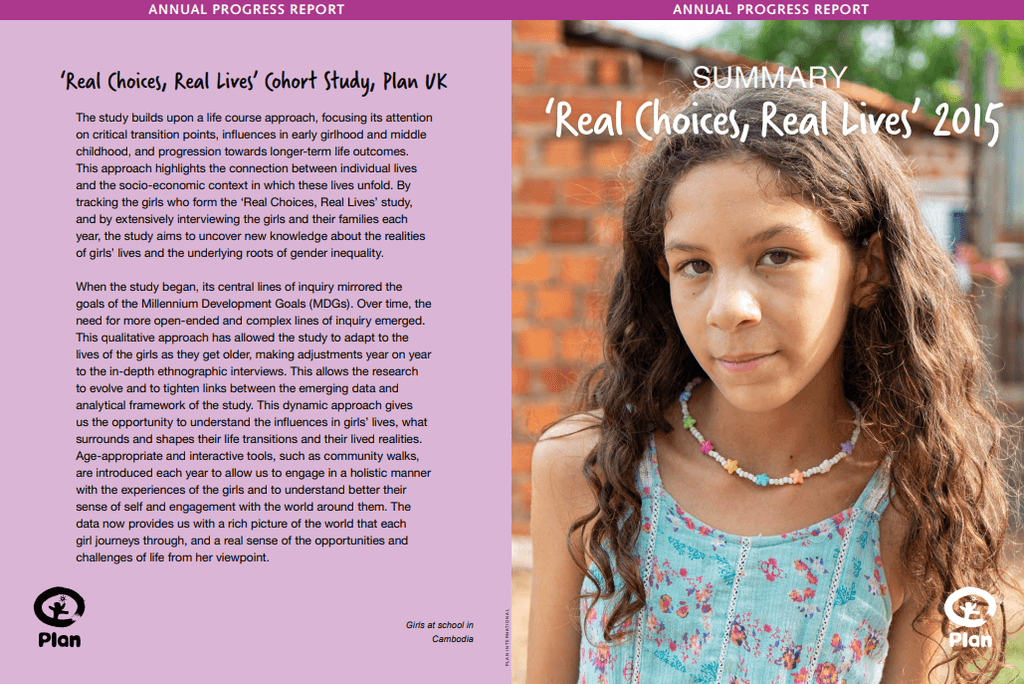
“It’s not fair because I do more than my brother. I told my mother, but she didn’t say anything about it.”
Hillary, age 8 (2015), El Salvador
Download the 2015 report
Real Choices Real Lives Summary (2015)
2.34 mb


